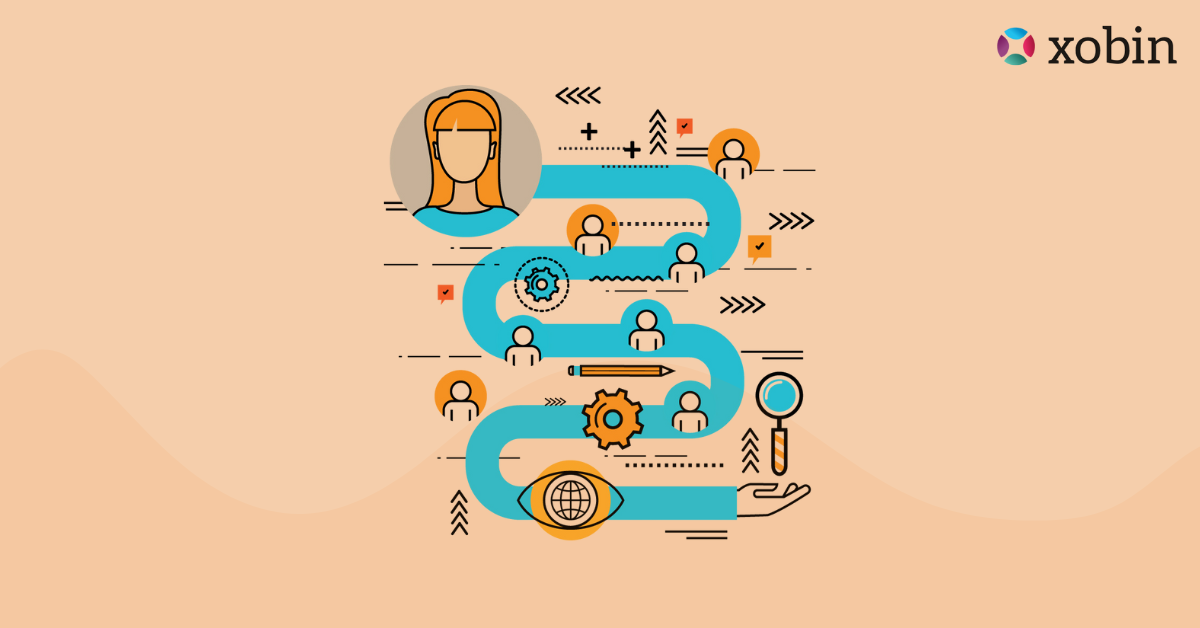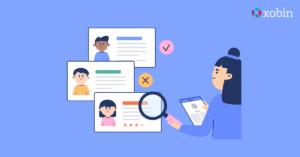Building a talent pipeline isn’t just about filling roles; it’s about future-proofing your organization. In today’s competitive market, where top talent gets multiple offers, companies that rely solely on reactive hiring lose time and opportunities. A proactive talent pipeline strategy ensures that you always have pre-qualified, engaged candidates ready when new positions open.
Table of Contents
This blog dives into how HR leaders and recruiters can build and maintain a powerful talent pipeline that consistently delivers high-quality hires while reducing time-to-fill and cost-per-hire.
TL;DR
- A talent pipeline is a proactive strategy to source, engage, and nurture potential candidates for future hiring needs.
- Building a pipeline reduces hiring delays, improves candidate quality, and strengthens employer branding.
- Key steps: Workforce planning → Sourcing → Engagement → Assessment → Relationship Management → Continuous Optimization.
- Use AI-based assessment tools and analytics to maintain an active and quality-driven pipeline.
- Recruitment platforms like Xobin help automate talent evaluation and engagement through AI-driven insights and proctoring tools.
Why Talent Pipelines Matter More Than Ever
The global talent shortage is expected to reach 85 million people by 2030 (Source: Korn Ferry). That’s why organizations can no longer afford to start from scratch every time a role opens. Recruiters can access pre-vetted candidates who align with company culture and job requirements through a talent pipeline.
Moreover, proactive talent management reduces time-to-hire and enhances candidate experience. These two metrics directly influence your employer brand.

6 Strategies to Build and Maintain a Talent Pipeline
Step 1: Strategic Workforce Planning
Before sourcing candidates, HR leaders must understand future workforce needs. Workforce planning involves identifying skill gaps, succession requirements, and future hiring demands aligned with business goals.
- Forecasting demand: Analyze business expansion plans, retirements, and turnover trends.
- Skill mapping: Identify emerging roles (e.g., data analysts, AI engineers) to future-proof hiring.
- Internal mobility: Evaluate current employees for redeployment or upskilling before external hiring.
By connecting workforce analytics with long-term strategy, companies can align their talent pipeline development with growth goals.
Step 2: Building a Robust Sourcing Strategy
Once you’ve identified the skills and roles you’ll need, it’s time to source proactively. Instead of relying on job boards when openings arise, recruiters should consistently attract potential candidates through multiple channels:
- Social recruiting on LinkedIn, GitHub, and niche networks.
- Employee referrals that leverage trust and cultural fit.
- University partnerships for early talent identification.
- Talent communities and email campaigns to maintain engagement.
A multi-channel sourcing strategy widens your pipeline and boosts your chances of finding top talent. Moreover, use AI-powered sourcing tools to align candidate profiles with open roles and forecast future hiring fit.
Step 3: Engaging and Nurturing Candidates
Sourcing is only half the job; engagement sustains the pipeline. A common mistake organizations make is sourcing candidates once and losing touch until a role opens.
Here’s how to keep your talent pool active:
- Send personalized updates about company achievements or industry trends.
- Host virtual events, webinars, or hackathons to build community.
- Share content marketing campaigns showcasing company culture and values.
Nurtured candidates are 3x more likely to respond to job openings compared to cold outreach (Source: LinkedIn Talent Trends).
Step 4: Assessing and Qualifying Candidates
An effective pipeline is not just full; it’s filtered. Implement pre-assessments and behavioral evaluations to qualify talent early.
Using AI-based skill assessments, recruiters can objectively evaluate:
- Technical competencies
- Soft skills
- Behavioral and psychometric traits
This ensures that candidates in your pipeline are not just interested but also fit your organizational DNA.
Simplify your candidate evaluation process with Xobin's AI-driven assessments.
Book A DemoStep 5: Relationship Management and Continuous Engagement
Talent relationships should be managed like customer relationships. Use candidate relationship management (CRM) systems to categorize candidates by skill, readiness, and role type.
Key practices include:
- Segmenting your pipeline (active, passive, silver medalists).
- Automated follow-ups to maintain consistent communication.
- Personalized content to sustain engagement and trust.
Companies with structured talent CRMs are 40% faster in filling roles, according to SHRM.
Step 6: Measuring and Optimizing Pipeline Performance
A successful system for managing talent pipelines relies on data. Track metrics such as
- Time-to-fill
- Source-to-hire ratio
- Engagement rate
- Candidate quality index
Continuous analysis ensures your pipeline evolves with market trends and internal needs. Leveraging analytics also helps identify which sourcing channels deliver the best ROI.

Build Your Next Talent Pipeline with Xobin!
Building an effective talent pipeline is no longer optional; it’s essential for strategic and agile hiring. When organizations align workforce planning with data-driven sourcing, engagement, and assessment, they create a steady flow of qualified talent.
With Xobin, you can automate and optimize every stage of your talent pipeline, ensuring speed, quality, and scalability in your hiring strategy. Moreover, Xobin empowers teams to build, assess, and maintain talent pipelines with AI-powered precision.
- AI-Based Resume Parsing & Fitment Score: Instantly evaluate resumes and deliver precise candidate-job match insights.
- Pre-Employment Testing: Access 3,400+ customizable skills assessments and 2,500+ job role-based tests to verify technical and behavioral competencies.
- Video Interviews & Proctoring: Engage candidates through structured, bias-free evaluations powered by advanced AI proctoring technology.
- Applicant Tracking System (ATS): Streamline your entire pipeline from application to offer using one unified dashboard.
- Collaborative Hiring: Empower hiring teams to evaluate together and make consistent, data-backed decisions.
Book a personalized demo with Xobin today and discover how AI can transform your recruitment pipeline.
FAQs
1. What is a talent pipeline?
A talent pipeline is a proactive strategy to source and nurture potential candidates for future roles rather than hiring reactively when a position opens.
2. Why is building a talent pipeline important?
It shortens hiring time, improves candidate quality, and builds stronger employer branding by maintaining consistent engagement.
3. How do you keep a talent pipeline active?
Through regular communication, personalized engagement, virtual events, and AI-driven insights that identify when candidates are ready to move.
4. How does Xobin help build and maintain a talent pipeline?
Xobin’s AI-powered assessments, resume parsing, ATS, and collaborative hiring tools automate evaluation, engagement, and data tracking, keeping your pipeline active and efficient.
5. What metrics define a successful talent pipeline?
Time-to-fill, candidate engagement rate, source quality, and conversion ratios are key success indicators.







